Living Her Dream
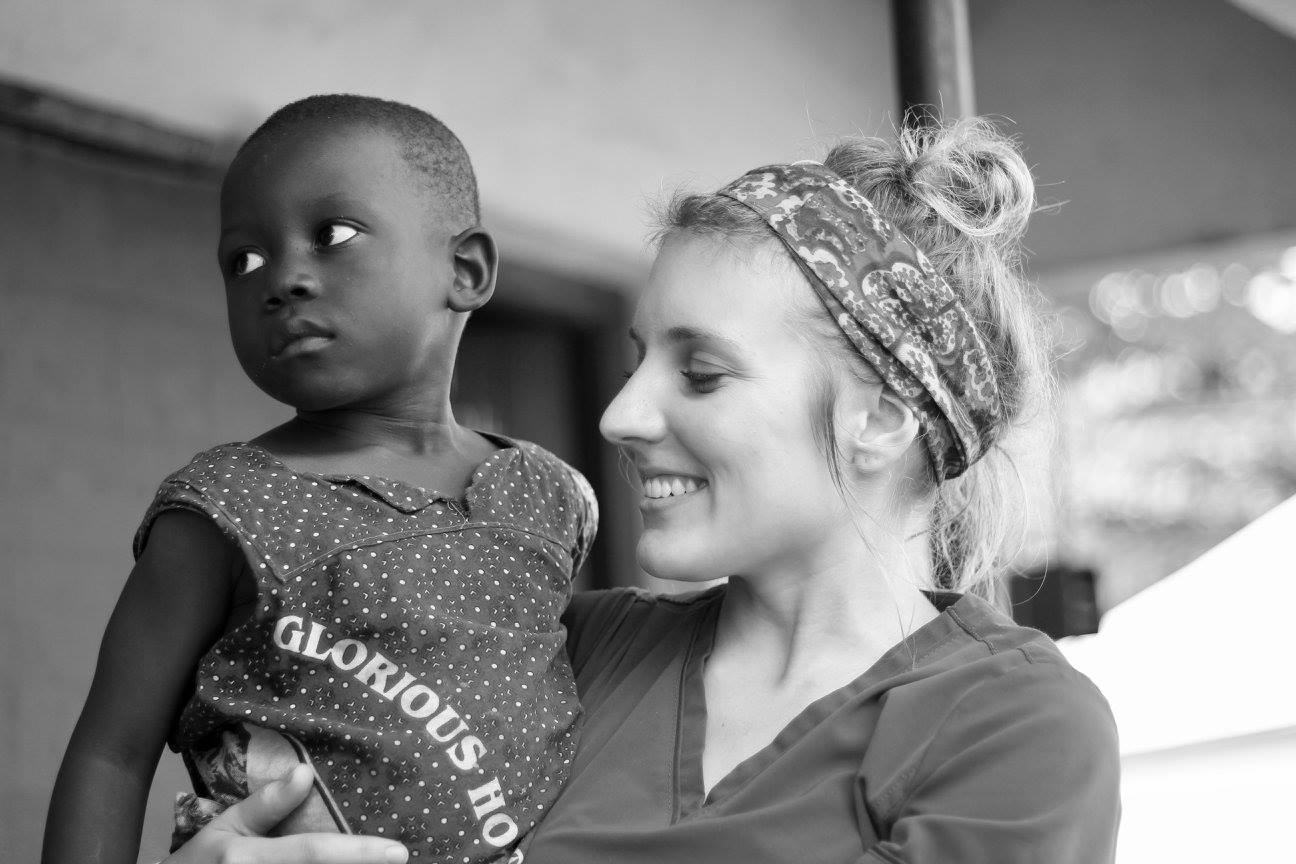
A student treats a patient at the Kristina Chesterman Memorial Clinic.
Chico State nursing community honors student’s legacy through Africa clinic
It was not their dream. But it was Kristina’s—and seeing it realized made all the work worthwhile.
The Kristina Chesterman Memorial Clinic became a dream unto its own for a faculty member, seven students, and two alumnae, who trekked to Ozu Abam, Nigeria, in January for its grand opening.
“[We] had a very emotional realization when we got to walk through the clinic,” Kayla Kreich (Nursing, ’15) said. “We could not believe our eyes, in that the efforts and money we had raised over the last four years had turned into a magnificent building that would provide health care for so many people.”
A fourth-year student in her second semester of the nursing program, Chesterman was fatally struck by a drunken driver in September 2013. She was known as an exceptionally caring and connected person, a friend to all, with big dreams and selfless aspirations. Her untimely death shook the campus and community to their core.
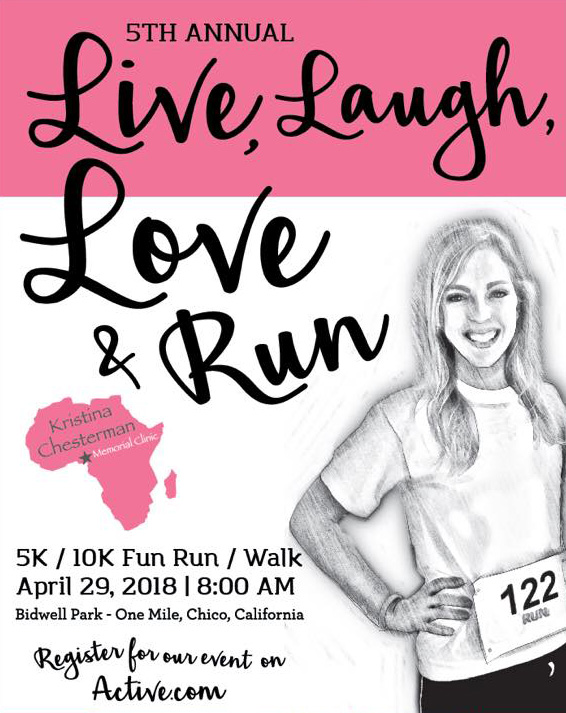
To honor the spirit of the clinic’s namesake, the team stocked the new facility with medical supplies and treated patients for everyday ailments and critical care.
“Everything was immaculate and beautiful,” nursing student Josephine Falvey said. “The clinic just embodied Kristina.”
Shortly after Chesterman’s death, her mother discovered a list of dreams, which caught international attention as friends, family, and strangers carried out her life ambitions—from visiting all 50 states to running through a poppy field.
Chesterman had also planned to spend a year after graduation working in Africa with Doctors Without Borders, which spurred Chico State nursing instructor Darcy Hostetter-Lewis to champion the creation of a memorial clinic, not only to honor her but to serve as a training ground for other Wildcat nursing students.
They’ve been fundraising for years but trip preparations began in earnest last spring. Amid a flurry of Amazon Prime shipments, conference calls, and group meetings, the students flew to Los Angeles for visas and drove to San Francisco for vaccines. For many, it was their first international medical mission.
“Nothing could prepare you for when we got there or how you would feel. It was just such a different world,” Falvey said.
After landing in Nigeria, they spent nearly six hours at customs in a white tent packed solid with people. All they could think was to protect their supplies—Kristina’s supplies.
“You are standing shoulder to shoulder just dripping with sweat, and we have 30-something bags that were 50 pounds each,” Falvey said, noting the luggage was stuffed with everything from antibiotics to IV fluids and gauze to surgical supplies, ready to stock the clinic’s pharmacy, laboratory, consultation rooms, and more.
Over the next two weeks, the Chico State team treated 483 patients. They collected health history and vitals while working with an interpreter. Then it was on to consults and triage, where they developed care plans and administered treatments. They also set organized the pharmacy and established the surgery suite.
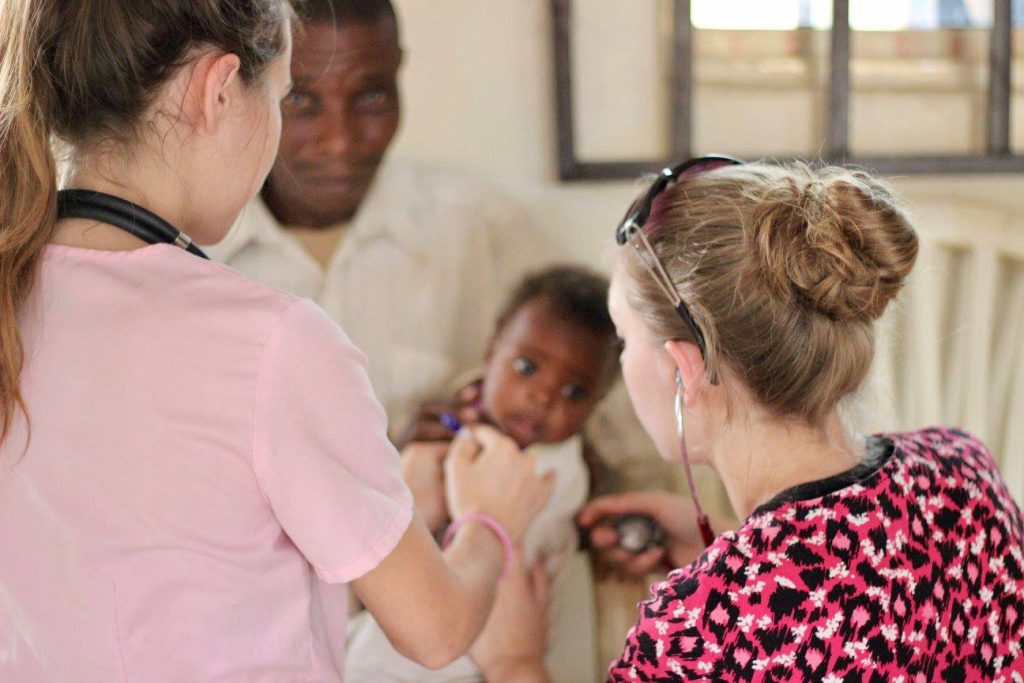
“A lot of people in the nursing career, that is their goal—to help people—and that is what we did,” said Rachel Nuno (Nursing, ’15). “And it wasn’t just anyone, it was people who really needed it. You felt like you were making a difference. It was the best feeling.”
The students became as familiar with treating malaria as they are with the common cold, and diagnosed dozens of hypertension cases, with some patients suffering so severely they were at real risk of stroke. Chronic pain, parasitic infections, tuberculosis, and hernias in children were also profound, as were stomach ulcers and upper respiratory tract infections. Some patients had gone blind due to severe worm infections or cataracts.
The team was encouraged by the fact the clinic does not require payment before treatment, unlike the nearest public hospital, where “you could be dying, bleeding out, and they will not treat you unless you pay. Even if a woman needs a C-section, if she could not pay, they would not help her,” Falvey said.
They also remembered the value of the basics—being forced to diagnose and treat without resources they are accustomed to. That was true when student Devon Carson diagnosed a little boy with sickle-cell anemia without a blood panel, and classmate Lindsay Myers recognized syphilis without test strips.
“There was a lot of independence that we were not used to here [in the United States],” explained Myranda Waite. “Now, when I make an assessment of my patients, I will be thinking much more about it, what does this mean and what treatment she may need.”
As they took supervised charge over patients, many developed greater confidence in their skills, conviction in their career choice, and pride in their peers.
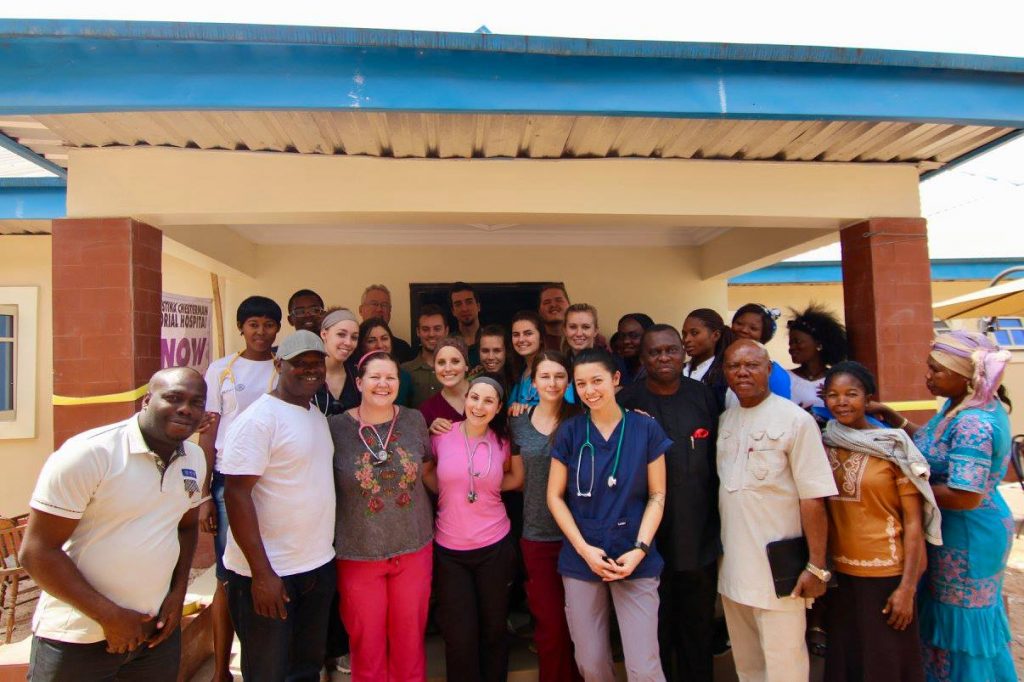
“I was so amazed by my classmates and how much they knew and how dedicated they were—to be sick, hot, hungry, tired, uncomfortable, and to go into a room and give a patient their all,” Falvey said. “The effort and dedication went into everything, whether they were going through boxes of supplies or consulting with patients.”
It was also a moment to confront their own privilege, many of whom had never been a minority in a group based on the color of their skin, and to be grateful for their own access to health care, while also gaining cultural perspective on what’s important in life.
“They are so much more present in everything that they do,” Myers said of the patients they served. “They are all in with everything. They have so little, but they are so happy. And they appreciate what they have.”
That sentiment of gratitude resonated with the team, especially for the chance to be involved with the clinic.
“She gave me this opportunity and because of this opportunity I have realized I need to keep doing things like this,” said student Hayley Trigg. “It changed my perspective on everything, not just my personal life but as a nurse … And if it wasn’t for Kristina’s bucket list and idea, I would not have had any of this.”
“And you wouldn’t know you are passionate about medical missions,” Myers added.
“Or what you are capable of,” Falvey said.
There are now murmurs of a second clinic—a big step for those who were admittedly not sold on the idea from the start.
“It was challenging and exciting but I think it can be done again,” Kreich said. “I don’t want to say I have added it to my bucket list, but I want to be crazy enough that this can be done again and we should.”
The team also noted that the existing clinic has incredible potential to grow. They are already plotting how to add a dentist, optometrist, and other specialized care. Dreaming even further, they reached out to Chico State engineering students, to draft a plan to power the clinic with solar panels, and concrete industry management and civil engineering students to discuss ways to improve the roads to reach the clinic.
“This is not a one-time thing. This is something we want to continue, at least for me, throughout my nursing career,” Waite said.
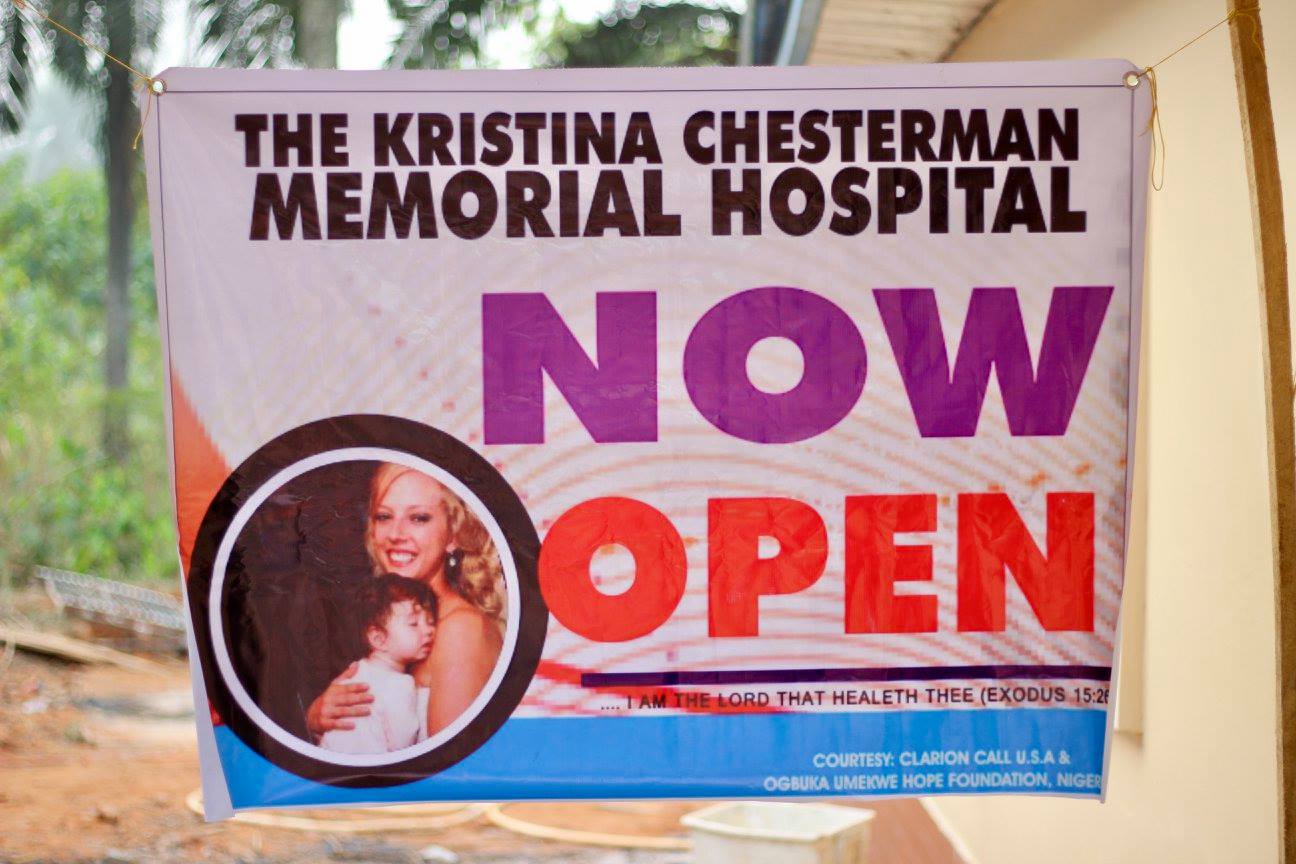
Those who knew Chesterman noted she would probably be embarrassed by all the attention, because she was so modest and humble.
“And yet, I think she would be proud of the impact she has had on so many people,” Hostetter-Lewis said.
Because, after all, that was item No. 5 on her list.
“Save someone’s life.”
***
At the University level, a scholarship endowment has been set up in Chesterman’s name to forever help students who embody her spirit and are pursuing the nursing profession out of the love of helping others. To make a gift, visit www.csuchico.edu/giving.


